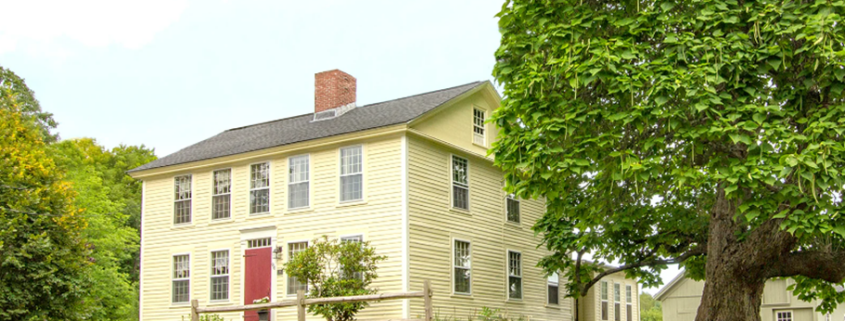Home Inspections in Massachusetts: A Comprehensive Guide
Massachusetts, with its rich tapestry of history and diverse architectural landscape, presents a unique scenario for home buyers. The state’s real estate portfolio ranges from contemporary constructions to historic homes that whisper tales of the past. Given this variety, conducting a thorough home inspection is a crucial step in the home-buying process in the Bay State.
This guide aims to walk you through the intricacies of home inspections in Massachusetts, highlighting what to expect, potential challenges, and why it’s more crucial here than in other states.
Understanding the Massachusetts Home Landscape
Massachusetts’s real estate market is a fascinating blend of the new and the venerable. The state has a higher proportion of older homes compared to Connecticut and Rhode Island. This is not merely a statistical quirk but a testament to the state’s historical significance and the preservation of its architectural heritage.
Massachusetts is renowned for its historic homes, with many properties dating back to the colonial era and the early days of American independence. This historical charm adds a layer of complexity to the home inspection process. Unlike newer construction, where inspections might be more predictable, the older homes of Massachusetts require inspectors to have specialized knowledge of historical construction techniques, materials, and common issues associated with aging structures.
One of the most distinctive features of Massachusetts’s older homes is the prevalence of stone wall foundations. These foundations, while sturdy and evocative of a bygone era, require a keen eye to assess for potential issues such as mortar deterioration, water infiltration, and structural stability. The charm of these stone foundations is undeniable, but their maintenance and repair can be complex and costly.
Home Inspections in Massachusetts: What to Expect
Standard home inspections in Massachusetts cover a comprehensive check of the property’s structural integrity, systems, and components. This includes the foundation, roof, plumbing, electrical systems, heating and cooling systems, and interior and exterior conditions.
However, due to the prevalence of older homes, prospective buyers should be prepared for a few additional layers of scrutiny:
- Foundation and Structural Integrity: Many Massachusetts homes, especially the older ones, might have foundations made from stone or other materials that are no longer in use. Inspectors will closely examine these for any signs of failure or needed repairs.
- Historical Construction Materials: Materials such as horsehair plaster, lead pipes, lead paint, or asbestos may be present in older homes. A knowledgeable inspector can help identify many of these and recommend further specialized inspections if necessary.
- Outdated Systems: Homes with systems not updated to current standards, such as knob and tube wiring or old plumbing, will need careful evaluation. These systems can pose safety hazards and may need significant upgrades.
- Preservation and Restrictions: In some cases, homes within historic districts may have restrictions on the types of modifications that can be made.
The Importance of a Respected Inspector
Given the unique challenges presented by the Massachusetts real estate market, choosing an inspector with experience in older homes and knowledge of local regulations is imperative. A specialized inspector can provide insights into the maintenance and preservation of historical features while ensuring that the home meets current safety standards.
Preparing for Potential Challenges
Homebuyers should be prepared for the possibility of uncovering issues that are more common in older homes, such as structural weaknesses, outdated electrical and plumbing systems, and the presence of hazardous materials like lead paint or asbestos. Addressing these issues can be costly, so it is crucial to factor in potential repairs and upgrades when considering the purchase of an older home.
Navigating the Home Inspection Report
Once the inspection is complete, you’ll receive a report detailing the inspector’s findings. This report is a valuable tool in the home-buying process, providing a clear picture of the property’s condition.
Conclusion
In Massachusetts, where history and modernity intertwine, the home inspection process is an indispensable step in ensuring that your investment is sound and your future home is safe and secure. By understanding the unique aspects of home inspections in Massachusetts, choosing a qualified inspector, and being prepared for the challenges older homes may present, you can navigate the process with confidence. Remember, a thorough home inspection can ensure that your dream home in Massachusetts is a joy, not a burden, for years to come.
At CMS Home Inspection, we have years of experience and understand the concerns regarding owning a home in Rhode Island, Massachusetts, and eastern Connecticut. Our thorough home inspections provide the tools necessary for you to understand the structure behind any potential property, as well as necessary repairs.
If you’re looking to buy a home, or haven’t inspected your home in a long time, in Southeastern, South Shore, or Central Massachusetts let’s connect and get your inspection scheduled today.




Leave a Reply
Want to join the discussion?Feel free to contribute!